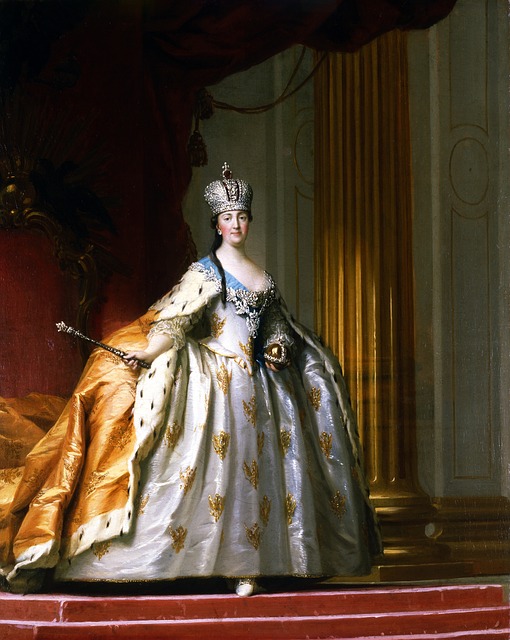By Tim Lambert
Her Early Life
Catherine the Great was born Sophie Friederike Auguste von Anhalt-Zerbst in Stettin, Prussia on 2 May 1729. Her father was a German prince. It was decided she should marry Peter, the heir to the throne of Russia. She moved to Russia in 1744 and changed her name to Catherine. She married Peter in 1745. However, the pair detested each other.
Peter III became Tsar in 1762 but he reigned for only a few months before he was forced to abdicate. His wife succeeded him and she became known as Catherine the Great.
The Empress
Although she liked to be seen as an enlightened despot and she corresponded with Voltaire and Diderot many of Catherine’s subjects were poor and oppressed. In 1773 man named Yemelyan Pugachev led a rebellion. The rebellion had considerable success but it was finally crushed in 1774. Pugachev was brought to Moscow in an iron cage. He was beheaded and his body was cut into quarters.
Afterward, in 1775, Catherine reformed the local government. In 1785 she gave the gentry (wealthy landowners) a charter (a document granting or confirming certain rights).
Meanwhile, Russia continued to expand in the 18th century. Russia fought a successful war with the Turks in 1768-1774. As a result, the Russians gained land by the Black Sea. In 1783 Russia took Crimea. The Turks lost still more territory after a war in 1787-1791.
Meanwhile, Russia took parts of Poland. In 1772 Russia, Prussia, and Austria helped themselves to a slice of Polish territory each. Russia and Prussia helped themselves to more Polish territory in 1793. Finally, in 1795 Russia, Prussia, and Austria divided up what was left of Poland between them.

During the 18th century, Russian territory and population greatly increased. Russia’s new territory in the south was called New Russia and many people migrated there. Meanwhile, Russians settled in the east. Russian industry also grew at this time and foreign trade expanded rapidly. Catherine the Great died on 17 November 1796. By the time she died, Russia was very powerful.